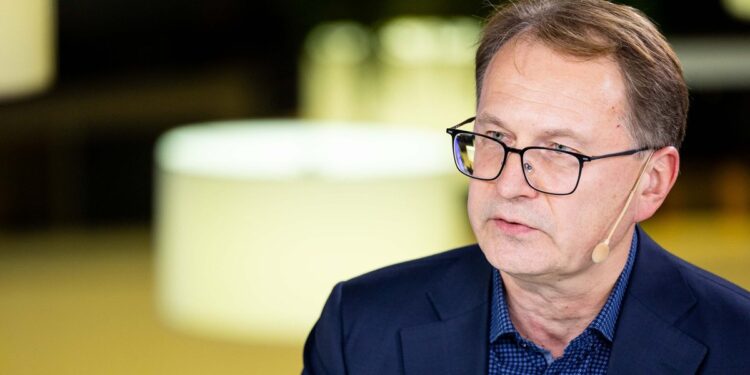A former Chairman of Lithuania’s Constitutional Court (2014–2021) and a Member of the European Parliament since June 2024, Dainius Zalimas visited Georgia at the end of December. Radio Free Europe/RL’s Georgian Service spoke with him on February 13, following the adoption of yet another critical resolution by the European Parliament.
The Georgian Dream PM claims that the latest EP resolution is not worth the paper it’s written on. Any counter-arguments?
Who is the Georgian Prime Minister? The man who has isolated himself so much that he can only talk to Orban and possibly Russian authorities? His narrative is a typical pro-Russian narrative, and his comments do not reflect reality. This resolution reflects the current situation on the ground, where the Georgian regime has become increasingly isolated, under political pressure and sanctions as well.
And still, let’s talk about the impact of the resolution – how lasting can it be, and how much groundwork can it provide for EU policy and approach towards Georgia?
I think it will have a significant impact, both in EU institutions and individual member countries. I believe that both the EU Commission and the European Council will uphold the key principles of this resolution and implement it, especially when it comes to redirecting aid towards civil society and independent media. This is emphasized in the resolution, so we expect concrete steps from the Commission in this direction. There is a sum of 120 million mentioned that could be used to maintain the viability of civil society and media in Georgia. It will also have an impact on the majority of EU countries, at least 25 of them, with notable exceptions being Hungary and Slovakia.
The resolution clearly states that Georgia currently does not have a legitimate government; the current one-party parliament cannot be recognized as legitimate, and the same goes for their puppet president. No high EU political body will receive him, while Salome Zurabishvili should be considered and recognized as the only legitimate representative of both the state and the people. This should be reflected in daily diplomatic interactions. There is also the matter of sanctions, and here too we believe that at least 25 countries will be encouraged to apply sanctions against those responsible for the current crisis.
How can all this manifest in the EU policy and approach, when, as you yourself mentioned, only 25 countries out of 27 are on board, with Hungary and Slovakia likely to veto anything that requires unanimous decision?
There are certain instruments that the Council can use to negotiate and influence Hungary and Slovakia.
Such as? How do you plan to convince Orban to abandon Georgian Dream, for example?
Mainly financial ones – assignments on certain funds can be made dependent on Hungary’s approach to this matter, to put it in abstract terms.
And is Georgia important enough for Brussels to pressure Hungary by withholding funds, as it tries to do in Ukraine’s case?
I would say Georgia is important. What we see here is that our common principles are defended by the Georgian people, so common sense would dictate supporting Georgia. Negotiations between 27 countries are always difficult. But one of the reasons why the European Parliament adopts this kind of resolution is to make the Commission and the Council feel political pressure and act on it. If this resolution is not implemented, many questions will be asked of concrete commissioners and the Commission itself as well.
What would your message be to the people protesting in the streets of Georgia and, on the other hand, to the Georgian Dream government?
I have always believed in the strength of the people, so I admire the bravery of the Georgian people, and I believe in their victory. So, don’t surrender. Keep going, sooner or later, you will win. As for the Georgian Dream, I would urge them to come to their senses. It’s not too late to resign and give the people a chance to form a legitimate government. Because when it is too late, you will be in the courtroom, tried for betraying the state, or even worse, for crimes against your own people.
Interview by Vazha Tavberidze














